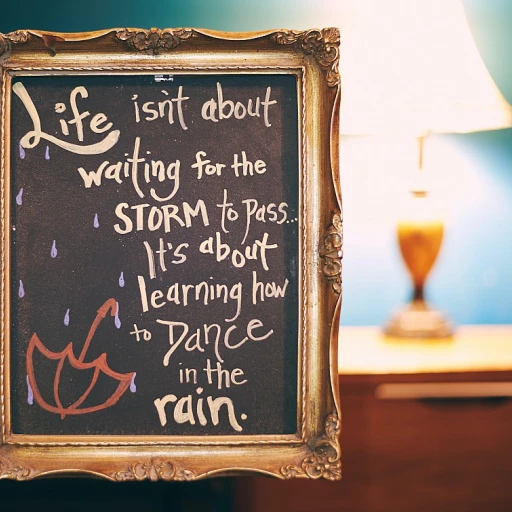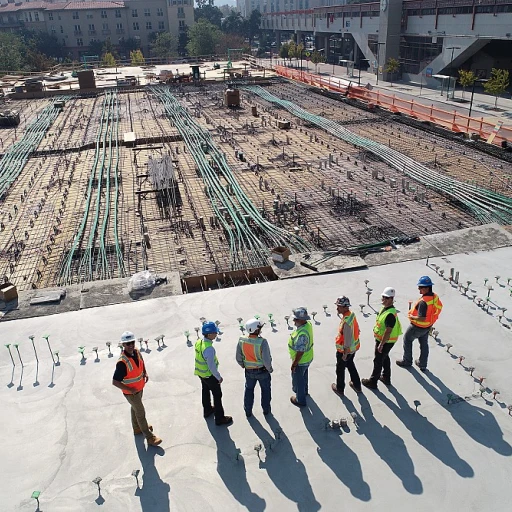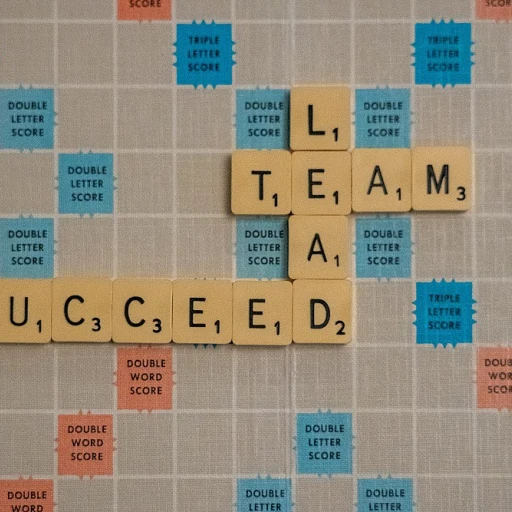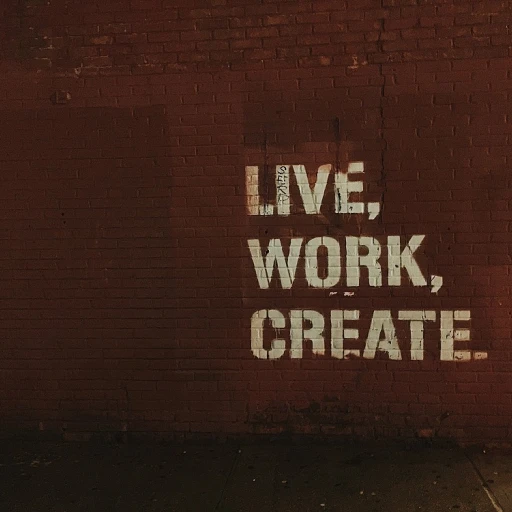Understanding the Role of Human Resources
Dive into the Dynamic World of HR
To truly excel in an HR job interview, it's essential to first comprehend the multifaceted role that Human Resources plays within an organization. The HR function is far more than handling employees’ paperwork and managing payroll. It's about being the backbone of a company, enhancing the work environment, and driving organizational success through strategic alignment of human capital.
Human Resources professionals are the bridge between the management and the employees, ensuring smooth communication and fostering a positive work culture. They are responsible for everything from recruiting talent to managing benefits and ensuring compliance with labor laws. Understanding these responsibilities is crucial for crafting a compelling resume and cover letter, which we will delve into later.
Equally important, HR practitioners often find themselves in problem-solving scenarios, requiring them to balance resource management with employee advocacy — a topic that will be explored in more detail as we progress. This capability is central because you're not just resolving issues for the staff but also interpreting the company’s needs to make effective decisions.
Moreover, HR interviews often feature a common set of challenging questions that aim to explore these themes in depth. It’s beneficial to
explore common HR interview questions to better prepare your answers and demonstrate your understanding of the HR field.
Overall, understanding the pivotal role of HR is your first step towards showcasing how you can contribute to an organization's success. As you prepare for your HR interview, remember that the key is to align your skills and experiences with the broader objectives of the HR department.
Crafting a Standout Resume and Cover Letter
Building an Irresistible Application Package
Crafting a standout resume and cover letter is a crucial step in preparing for a job interview in human resources. Your resume is often the first point of contact between you and the potential employer, making it imperative that you present yourself as a qualified and appealing candidate right from the outset.
When it comes to your resume, clarity and conciseness are your best friends. Ensure that your layout is clean and easy to read. Start with a compelling summary that highlights your career achievements, emphasizing relevant experiences that align with the specific HR role you're applying for. Ensure that experience descriptions are action-oriented, reflecting your direct impact on previous companies. Use quantifiable achievements when possible to demonstrate results, like reducing employee turnover or implementing successful recruitment initiatives.
Your cover letter is an opportunity to add a personal touch to your application. Tailor each cover letter to the job you're applying for, discussing why you're interested in the role and how your skills, experiences, and values align with the company's mission. Be succinct yet expressive and remember that this is your chance to showcase your enthusiasm and professionalism. Personal anecdotes about interactions with your own company’s HR department or moments when you exemplified resourcefulness can bring your narrative to life and make your application more memorable.
If you're interested in further refining your skills for HR interviews, explore our
mastering HR interview skills for success guide which offers detailed insights into building a strong application package and so much more."}
Communication Skills: The Heart of HR
Effective Communication: The Cornerstone of HR
When it comes to human resources, communication is not just a skill—it's the lifeline of the profession. In any HR job interview, your ability to communicate effectively can significantly influence the impression you leave on your potential employer. Here's why this skill is crucial and how you can refine it to excel in your interviews.
HR professionals serve as the bridge between management and employees, making communication a key competency. Whether you're facilitating a conflict resolution session, delivering a training workshop, or simply articulating a complex policy to a team, being clear and precise is paramount. Interviewers will be on the lookout for your ability to express ideas succinctly and listen actively.
Listening: The Other Side of Communication
As vital as speaking is, listening is an equally important, yet often overlooked, aspect of communication in HR. During interviews, showcase your active listening skills—paraphrase questions to confirm understanding, and respond thoughtfully. This not only demonstrates your communication expertise but also your problem-solving abilities, as described in the section on problem-solving and resource management.
Moreover, engaging in active listening encourages a positive exchange and shows respect for the interviewer’s time and insights. HR roles often require the navigation of delicate situations where a keen ear can help you comprehend underlying issues and respond appropriately.
Non-verbal Communication: Reading Between the Lines
Non-verbal cues can be just as telling as words, if not more so. Mastery of these cues helps HR professionals to understand employees' true sentiments and to create a more inclusive workplace. During interviews, be mindful of your body language—maintain good posture, make eye contact, and use gestures that convey confidence.
Understanding non-verbal signals is an invaluable tool, both for building rapport with colleagues and for gauging how your messages are received. The ability to interpret these cues effectively aligns with crafting a standout resume and cover letter, where what you present visually also communicates your professionalism.
To further hone your communication skills and ensure you're thoroughly prepared for your next interview, be sure to check out this
preparation checklist, designed to help you ace any HR interview scenario you might encounter."}
Problem Solving and Resource Management
Excel in Resource Management
Resource management is a critical skill for any HR professional. This skill goes beyond just managing people; it also involves effective allocation and utilization of an organization’s resources. In HR, these resources can include time, budget, and personnel. In an interview, candidates may be asked to demonstrate their ability to efficiently manage these resources to ensure optimal productivity and organizational success.
A strong foundation in resource management means being able to prioritize tasks, allocate team members to projects where their skills are most needed, and ensure that projects are completed on time and within budget. During interviews, it’s helpful for candidates to share specific examples of past experiences where they effectively managed resources. For instance, discussing a scenario where you successfully led a team through a significant workload with limited resources can highlight your strategic planning and decision-making skills.
Showcase Your Problem-Solving Abilities
Problem-solving is at the core of HR responsibilities, making it an essential skill to highlight in an interview. HR professionals face a range of challenges, from resolving employee conflicts to navigating complex compliance issues. Candidates should be prepared to exhibit their problem-solving abilities by sharing detailed stories from their careers.
These examples should illustrate the process of identifying the problem, analyzing potential solutions, and implementing a successful resolution. Employers often look for candidates who can think critically and act decisively, especially under pressure. Consider mentioning any frameworks or systems you use to approach problem-solving strategically. This shows not only your capacity to handle problems but also your ability to do so with intention and structure.
Integrating your problem-solving skills with your communication abilities—as discussed earlier—can be particularly powerful. Effectively communicating solutions and engaging all stakeholders in the process is crucial for successful problem resolution in HR contexts.
Navigating Common Interview Questions
Enhancing Your Response to Typical HR Inquiries
Navigating an HR interview can often feel like charting unknown waters, yet being prepared for common interview questions can make the journey much smoother. Building on the foundational understanding of human resources - such as highlighting your pivotal strengths in crafting impeccable resumes and demonstrating your effective communication skills - can significantly bolster your confidence and presentation during an interview.
One of the critical aspects of the HR interview is anticipating the kind of questions that could potentially be posed by your interviewers. These questions range from situational and behavioral inquiries to direct questions regarding your experiences and challenges faced in past roles. It is essential, therefore, to practice formulating responses that align with your achievements and experiences while showcasing how they make you an ideal candidate for the HR role.
Consider using the STAR (Situation, Task, Action, Result) method to structure your answers. This approach will help you articulate your thoughts clearly and provide a comprehensive response, demonstrating your problem-solving skills and resource management abilities. Through this method, you will convey your personal strengths and how they translate into practical solutions.
Lastly, be prepared not just to answer questions, but to pose insightful ones as well. This will demonstrate your engagement and curiosity about the company and the role, further conveying your genuine interest in building a successful career in human resources. This interactive dialogue will showcase your interpersonal communication skills, which many HR positions prioritize.
As you prepare for your interview, you might find it helpful to delve deeper into typical HR interview questions. For more detailed guidance and examples, you can refer to the
common HR interview questions discussed in our other blog post.
Building a Career in Human Resources
Developing Your HR Career
Embarking on a career in human resources is an exciting journey, one that offers a multitude of paths and opportunities. After mastering the intricacies of crafting a standout resume and honing your communication skills, it's crucial to focus on long-term career growth. This involves not just navigating the job market but also understanding the evolving landscape of HR.
Start by setting clear career goals. Whether you aim to specialize in a particular area of HR, like talent acquisition or employee development, or aspire to a managerial position, having defined objectives will guide your professional journey. It's important to be adaptable, as the HR field is continuously changing with new trends and technologies shaping the workplace.
Networking plays a vital role in building your HR career. Engage with professionals in the field through HR associations, online forums, and social media platforms. Networking not only provides insights into industry best practices but also opens up opportunities for mentorship and collaboration.
Continuous learning and self-improvement are essential. Stay updated with the latest HR certifications and training programs that can enhance your skills and make you more competitive in the job market. Moreover, seek feedback and learn from every experience, whether it’s a successful project or a challenging interview.
Lastly, always be prepared to evaluate your progress. Reflect on your achievements and areas for improvement, and adjust your career plan accordingly. Keeping a growth mindset will enable you to thrive in the dynamic environment of human resources.
For more tailored strategies on developing a successful career in HR, consider exploring additional resources and expert advice available online.












